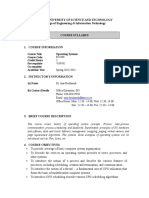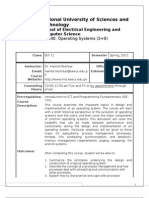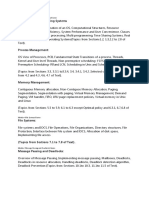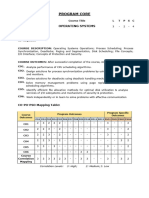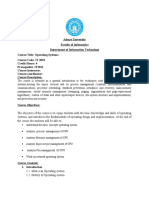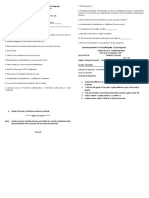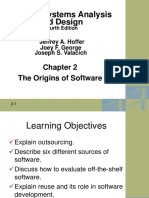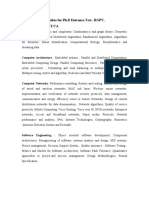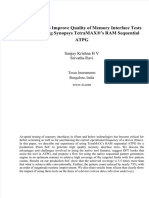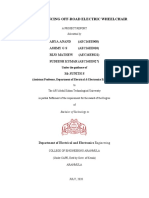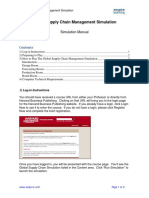0% found this document useful (0 votes)
59 views4 pagesLinux Lecture Notes If
The document outlines the course information for CS 375, Principles of Modern Operating Systems, at Jordan University of Science & Technology, including prerequisites, instructor details, and assessment policies. The course aims to teach the fundamental concepts of operating systems, covering topics such as CPU scheduling, memory management, and process synchronization. It also provides a detailed course content schedule, teaching methods, and policies regarding attendance, participation, and academic integrity.
Uploaded by
Prakash AdhikariCopyright
© © All Rights Reserved
We take content rights seriously. If you suspect this is your content, claim it here.
Available Formats
Download as DOC, PDF, TXT or read online on Scribd
0% found this document useful (0 votes)
59 views4 pagesLinux Lecture Notes If
The document outlines the course information for CS 375, Principles of Modern Operating Systems, at Jordan University of Science & Technology, including prerequisites, instructor details, and assessment policies. The course aims to teach the fundamental concepts of operating systems, covering topics such as CPU scheduling, memory management, and process synchronization. It also provides a detailed course content schedule, teaching methods, and policies regarding attendance, participation, and academic integrity.
Uploaded by
Prakash AdhikariCopyright
© © All Rights Reserved
We take content rights seriously. If you suspect this is your content, claim it here.
Available Formats
Download as DOC, PDF, TXT or read online on Scribd
/ 4
